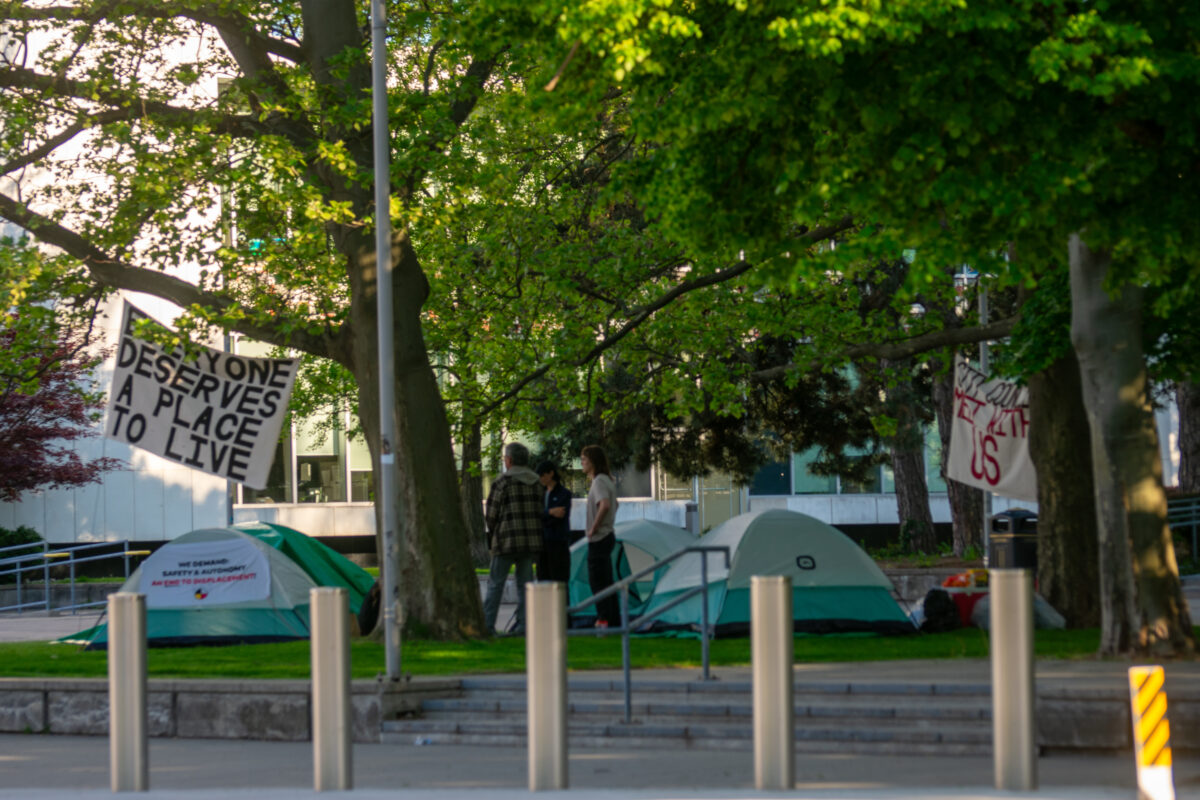The Court of Appeal for Ontario has ruled that it will allow lawyers appealing Justice James Ramsey’s decision to not permit encampments to argue the Justice erred in not admitting some affidavit evidence and statistical data when deciding on Hamilton’s bylaws prohibiting encampments.
Lawyers representing the homeless individuals plan to argue that Justice Ramsey made numerous errors of law in his decision. The appeal application groups these errors into ten categories.
Lawyers for the City of Hamilton sought to exclude grounds 1 and 3 of the appeal filing.
In decisions prior to oral arguments, Justice Ramsey categorized some physicians as “participant experts” and excluded their evidence.
Writing for a three-judge panel of the Court of Appeal, Justice Julie Thorburn states the issues of evidence considered are “inextricably linked and interrelated” to the appeal of Justice Ramsey’s decision.
In permitting the appellants to argue grounds 1 and 3, the Court of Appeal panel has set the stage for a fulsome and extensive hearing that should settle the legal questions regarding when a Charter Right to erect an encampment exists and what the legal framework in Ontario is.
The panel decision is merely procedural. They made no findings of fact, nor any weighting regarding the merits of the appeal.
Ontario’s Superior Court has dealt with numerous encampment Charter challenges across Ontario, with judges adopting the Charter of Rights and Freedoms Section 7 framework set by British Columbia’s Court of Appeal in Victoria (City) v. Adams, 2009 BCCA 563.
However, there have been varying interpretations of how to apply Adams.
In Hamilton, Justice Ramsey ruled there is a limited Charter right to overnight encampment. He ruled Hamilton’s bylaw prohibiting encampments is compliant because the City does not conduct overnight enforcement, and that meeting every condition of individuals (such as living in shelters as a couple, with pets, or using substances) is “impossible” for a municipality to do.
In Waterloo (Regional Municipality) v. Persons Unknown, 2023 ONSC 670, Justice Michael J. Valente stated shelters must be ‘truly accessible’ to the homeless population. This ruling prohibited the municipality from removing an encampment on vacant public land until the needs/requirements of individuals were met.
An important distinction in Waterloo is that the vacant public lands were not used for any other purpose and the judge did not have to weigh competing interests.
Dates for the Ontario Court of Appeal hearing are not finalized.
Production Details
v. 1.0.0
Published: July 23, 2025
Last updated: July 23, 2025
Author: Joey Coleman
Update Record
v. 1.0.0 original version


When will the judges consider the effect of providing shelters on the tax payers. Tax payers should also have rights on how much the cost they bear effects them